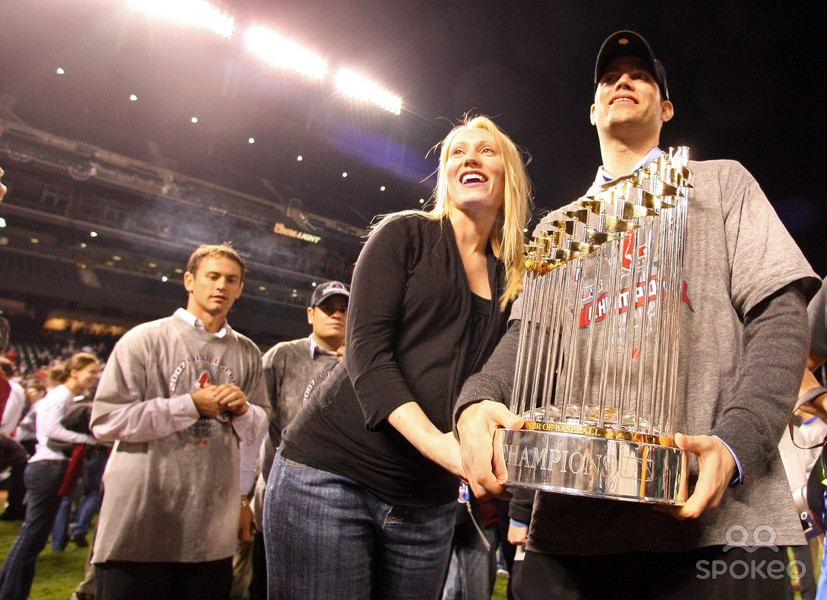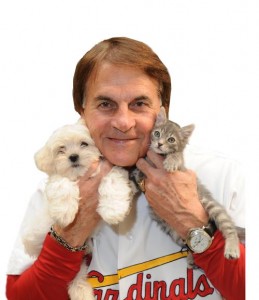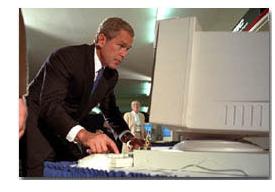So today, Gordon Wittenmyer of what’s left of the Chicago Sun-Times decided to play Snopes and debunk five things he thinks are myths about the Cubs rebuilding plan. Â Because two years of rebuilding 100 years of suck is more than enough, so it’s time to expose Theo Epstein for what he really is, a big fraud who poops his pants.
Cubs’ rebuilding project has taken on as much fiction as fact
Myths? Â Fiction? Â Hey, it’s not like a headline writer’s got time to actually read the article.
How quickly will the on-field misery for players and fans continue? How many more doomed-from-the-start seasons will be endured until somebody besides the opponent is celebrating at Wrigley?
Well, it’s been 105 years of on-field misery for players and fans, so what’s a year or two or five more?
Feel free to debate the merits of “In Theo We Trust†and “Wait Till Next Year.†But beware of at least a few of the more common myths surrounding this team and this rebuilding process:
You hear that gang? Â Gordo is going to cut through the bullshit! Â This rebuilding is a sham! Â The Cubs are terrible on purpose, and they don’t want to win again, ever. Â Apparently Tom Ricketts and Theo are just the 2013 version of Bialystock and Bloom. Â You’ll know that for sure when they start playing “Springtime for Selig” after every loss next year.
Myth 1: Theo Epstein is an Ivy League genius who’s ahead of the curve among baseball executives when it comes to the latest analytics and new frontiers in competitive advantage.
Well now, this myth sure looks like a fact. Â It’s going to take a mighty big brain to explain how this is false, because basically what Gordo is saying is that Theo went to an Ivy League school, and he has a proven track record of using analytics to help him do his job.
Fact: Yes, he’s an Ivy League grad (Yale). And maybe he’s a genius. He often is referred to as the smartest guy in the room by baseball people — albeit ironically by some critics, if sincerely by his close associates.
Ahh, the ironic use of “genius” what kind of assholes do that?
Ahh, shit.
But as smart as he and his trusted colleagues are, he and a select few executives haven’t been ahead of the curve for much of the last decade. The so-called “Moneyball†phenomenon has filled front offices coast-to-coast with top-heavy, often Ivy League-educated management teams, each with proprietary information/analysis systems, countless law degrees and Wall Street-caliber cost-to-value management skills.
So Theo is being criticized for other general managers adopting the methods he used to win two World Series in four years? Â I also like how apparently Gordo thinks all you have to do is pluck a guy from an Ivy League school, throw a spreadsheet at him and instantly your organization is completely up to speed.
Myth 2: The Cubs are a big-market, big-revenue team capable of using their financial muscle to do to the National League Central what the New York Yankees and Boston Red Sox have done to the American League East for years.
Damn right this a myth. Â The Cubs are no longer a big market team. Â Turns out all along the census taker for Cook County was the same guy who always estimated the Grant Park crowds for Bulls’ championship rallies. Â The population of Chicago is not 2.7 million, turns out it’s about 42,000.
Fact: The Cubs used to have a significant revenue advantage over the rest of the division and, according to Forbes, were the most profitable team in the majors last year. But new ownership has abdicated that position for four seasons through its highly leveraged purchase (the profitability ranking has as much to do with decreased baseball spending). Chairman Tom Ricketts — who admits debt management is a factor in current baseball spending — has suggested repeatedly that the baseball budget won’t be restored until new ballpark and television revenues are realized, which is likely at least a year away.
Debt load! Â I’m amazed he could contain himself until Myth #2 to trot this thing out. Â I’m not a financial analyst, but I drink at places where guys who pretend to be also drink. Â The idea that the Cubs can not jack the payroll up because they’re making payments to a bank is interesting, and wrong. Â A good chunk of the debt they are supposedly paying off is being paid off to their own trust. Â When they bought the Cubs the Tribune demanded the sale be structured to be as tax advantageous as possible. Â So much of the money had to be borrowed…and they borrowed a bunch of it, on paper, from themselves.
Bottom line: The Cubs are effectively, as one sports economist said, behaving like a “mid-market team.â€
You need to talk to better sports economists. Â If you believe the Cubs are behaving like a mid-market team, it’s a pretty well run mid-market team. Â They have built an academy in the Dominican Republic, strong-armed the city of Mesa into building them a new spring training site, come to an agreement on a rehab of Wrigley Field with the city, spent more money in the amateur draft than any other team, spent more money on international free agents than any other team, turned overpriced mediocrities like Ryan Dempster, Matt Garza, Scott Feldman, Paul Maholm and your beloved future Hall of Famer Alfonso Soriano into prospects, and cleared every onerous contract off the books.
It was nice of you to conveniently omit the fact that shortly after Theo was hired, MLB signed a new collective bargaining agreement that made it difficult and punitive to spend over slot on draft picks and international free agents. Â The Cubs had made no secret that their plan to rebuild the team on the fly was to draft hard to sign, high ceiling players and overpay them to buy them away from college scholarships and other sports.
The new system makes that hard to do, and yet, no team has done a better job of maximizing the money they are allotted than the Ivy League non-geniuses in the Cubs front office.
Just like with the nitwit from Bleed Cubbie Blue, I find it amazing (but shouldn’t) that anyone is already impatient a whopping two years into a rebuild. Â It’s like deciding to remodel your house and twenty minutes after they start knocking down walls you start complaining about how it’s not ready to move back into yet.
At no point have the Cubs been vague about what’s going on. Â That’s the amazing part to me. Â They’ve been telling you that this is going to take some time. Â When they gave Dale Sveum a three year contract it was pretty clear that the plan was to suck for three years. Â Before each of the last two seasons they warned everyone that they’d be trading for prospects at the deadline.
If you’d rather they just lie to you, I’m sure that can be arranged.
Myth 3: Epstein has done this before successfully.
Here’s the good part.
Fact:Â Not even close. He won the World Series twice as the general manager of his hometown Boston Red Sox, in 2004 and 2007,
That seems pretty close.
but only after inheriting a 2003 team that had five consecutive winning seasons (the last with 93 wins), two 20-game winners in 2002 (Pedro Martinez and Derek Lowe), Jason Varitek behind the plate and Manny Ramirez in the middle of the order.
That’s true. Â The 2002 Dan Duquette-Mike Port run Red Sox were basically the exact same team as the 2004 team that won the World Series. Â Except for the starters at first base, second base, shortstop, third base, DH, the closer, the number one starter, the number four starter, the manager and the rest of the coaching staff.
To say that Theo inherited a World Series team is ludicrous. Â True, he inherited good players like Pedro Martinez, Manny Ramirez and Johnny Damon, but he also inherited Shea Hillenbrand, Tony Clark, Carlos Baerga, Rey Sanchez, John Burkett and Frank (I made 23 starts in 2002) Castillo.
Theo’s front office had to use a loophole to get Kevin Millar out of a contract sale to a Japanese League team, traded the most iconic Red Sox of the last 50 years…to the Cubs no less to turn shortstop over to a yappy, defensive whiz in Orlando Cabrera. Â They had to spend Thanksgiving in Arizona kissing Curt Schilling’s ass (can you imagine the insufferableness in that room?) and…they made another huge move that apparently you aren’t going to let them take credit for:
Then David Ortiz fell out of the sky when the Minnesota Twins couldn’t afford to go through arbitration and non-tendered him.
Every team in the league could have had Ortiz, but only one team signed him. Â Theo’s Red Sox. Â He acquired the best pitcher on the market and turned a waiver claim into the most impactful offensive player of the year, but he didn’t do anything to shape that team.
He also didn’t handpick the manager, who at the time was a decidedly unpopular choice because Terry Francona had nothing but four losing seasons in Philadelphia on his resume.
Yes, you can say that the task was easier in Boston because he inherited better players, but to say that he didn’t build the 2004 team is moronic.
Even the 2007 team, which featured Epstein acquisitions Curt Schilling and Daisuke Matsuzaka, along with homegrown Dustin Pedroia and late-season addition Jacoby Ellsbury, likely wouldn’t have won without Ortiz — or Varitek or Ramirez, for that matter.
Funny that Gordon lists Schilling here instead of in 2004. Â It’s almost like he forgot Schilling pitched for both teams. Â He also doesn’t list Josh Beckett who won 20 games in 2007 and then four more in the playoffs (in four starts–allowing four earned runs in 30 innings). Â Probably because Theo was on his “sabbatical” when that trade happened…of course current Cubs GM Jed Hoyer was there for that trade. Â Gordon still doesn’t want to give Theo any credit for David Ortiz.
He also didn’t mention that Jonathan Papelbon (part of Theo’s first draft) saved 37 games with a 1.85 ERA that year. Â Kevin Youkilis played first and Billy Beane tried to trade for him pretty much every day from the day Theo became GM. Â Mike Lowell also came over in the Beckett trade and had an .879 OPS that year.
The 2004 team had six new players in the everyday lineup than in 2002. Â The 2007 team had six new players than 2004.
Roster churn. Â It’s a thing that the good organizations do on purpose. Â It just happens to the rest of the teams.
Bottom line: The kind of extreme overhaul the Cubs are undergoing is like nothing Epstein has experienced in his baseball career.
The stakes are the same, so you putting your own level of extremity on it seems a little superfluous.
Myth 4: As Ricketts told the Sun-Times this month, “There’s no other way to do it. It’s not like this is genius.â€
There is no other way to do this.
Fact: Ricketts is right in the most basic sense about building a strong organization through player development. But sacrificing big-league seasons to rebuild the farm system — by design using free agency to sign buy-low veteran players who can be flipped for prospects during a bad season — is anathema to the premise of major-league competition and charging admission.
This is just wrong. Â You just wrote that Theo inherited star players in Boston. Â Sure, you completely undersold what he did to bring in more stars, but without Pedro and Manny to build around, and with a new system of prospect acquisition that rewards losses more than anything else, this is actually the fastest way to rebuild.
You seem to want to take the side of the ticket buying fan and rail against the idea that they’re paying big league prices to watch their team lose. Â Well, welcome to the Cubs, a tradition like any other. Â Fans have been doing that for generations.
And let’s not pretend like the guys they’ve been trading away are superstars. Â Ryan Dempster was 35 years old when they traded him. Â Matt Garza had only made 29 starts in two years when they traded him. Â Paul Maholm? Â Thirty years old, enjoying a career year that he hasn’t come close to duplicating this season. Â Scott Feldman? Â For chrissakes. Â The fact they’ve gotten good players for this chaff is impressive.
What would their record have been if they’d kept them all?  Last year they went 61-101, right?  So if they don’t trade Dempster and Maholm they go 65-97?  Wow.  This year they’re heading for  65-97.  With Garza, what, they go 67-95?
If they had kept them and finished with those records, you’d have ripped them for not trading, tradable commodities in lost seasons.
Never mind the argument about spending big on post-prime veterans like the Yankees and Los Angeles Dodgers have — or Epstein’s Red Sox, for that matter. But what if the Cubs had been able to afford to sign international building blocks such as Yu Darvish and Yoenis Cespedes? What would that have made 2014 look like, especially if they had the means to do more than dream this winter about going after 24-year-old Japanese right-hander Masahiro Tanaka (20-0, 1.24 ERA, barely a walk per nine innings)?
You love to throw out Darvish and Cespedes, don’t you?
Darvish went for a $51.7 million posting fee. Â The most since Theo’s Red Sox dropped $51.1 million on Daisuke. Â Yu has turned out to be pretty damned great. Â As for Tanaka, he’s no Darvish.
But Yoenis? Â The Cubs were in on him and offered him the same amount of money that he signed with the A’s for. Â The A’s dropped a year off their offer to up the annual value. Â The Cubs signed Jorge Soler instead. Â Yoenis has, of course struggled this year to the tune of .241/.296/446/.741 with 26 HR and 80 RBI. Â His 107 OPS plus makes him the equal of Cubs rightfielder Nate Schierholtz.
Myth 5: This has been a bad two or three years, but it’s no big deal historically for this club. After all, these are the Cubs.
Fact: Assign whatever higher purpose you like to the early years of the Ricketts and Epstein Eras, but the Cubs have never lost more games in a two-year span than this (194), and they are just two losses short of the three-year franchise low (287 from 1960 to ’62). They weren’t charging an average of $46 per ticket in 1962, either. Even the ’62 equivalent of $6 would get you three bleacher tickets for the All-Star Game that summer at Wrigley Field.
The worst three year span like this, saw the debuts of Billy Williams and Ron Santo, and would eventually lead to what is sadly the glory years in recent Cubs history the longest winning season streak (six years from 1967-1972). Â But even that is meaningless. Â These are different eras.
If it looks like the Cubs tried to lose a shitload games the last two years, it’s because they did.
The reason the worst three year stretch is 50 years old is because the same thing rang true in every administration since that time.  Lose big one year, blow money on over the hill free agents, squeak over .500 and then be amazed at how it never builds to anything  sustainable.  The terrible 1983 Cubs became the immortal 1984 Cubs which became the terrible 1985 Cubs.  The awful 1997 Cubs begat the Wild Card 1998 Cubs which begat the awful 1999 Cubs.  Wash.  Rinse.  Repeat.
The fact is that the argument you want to make is one that you can’t make because it hasn’t happened yet.
Of the prospects in the Cubs system right now, and coming next year after another draft with a big signing pool, some will pan out, some won’t. Â Once there are some real ones in the big leagues, it’s incumbent on the Cubs to spend money to fill in around those players. Â If they don’t, this was all for naught.
But…we’re not there yet. Â And yet you want to make your argument anyway. Â So you say batshit crazy things like Theo has never actually built a World Series team.
Myth #6 — Sportswriters who bitch about lousy teams are doing it because they feel bad that fans are paying good money to watch bad baseball.
Fact: Sportswriters who bitch about lousy teams are pissed because it’s much more fun, and much easier to write about a contending team. Â Making half-assed arguments becomes the only way to get something they wrote actually read.





“At no point have the Cubs been vague about what’s going on. That’s the amazing part to me. They’ve been telling you that this is going to take some time. When they gave Dale Sveum a three year contract it was pretty clear that the plan was to suck for three years. Before each of the last two seasons they warned everyone that they’d be trading for prospects at the deadline.”
111!!111 Rec’d LSA 11!111!11 NAMBLA111
Funny that Gordon lists Schilling here instead of in 2004. It’s almost like he forgot Schilling pitched for both teams.
Give Gordo the benefit of the dobut, its not as if Schilling did anything that memorable in 2004.
Do you understand that market size does not equal city population? Go back and read up.
Awesome… When I read Wittenmyer’s article, I wanted to vomit. He’s a moron and always has been. Oh, and he’s a drunk moron. And he doesn’t like it when people remind him that he’s a drunk moron writes shitty articles based on shitty ideas. He’s sensitive about that… Ha. Nice post.
Go to bed son
Fact: Gordon Wittenmeyer tries impressing people at parties by saying he was in “Field of Dreams”.
thank you for writing this
Hi Bob, I’m Hi I’m Bob LeDonne.
I love this page.